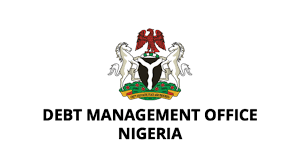Nigeria achieved a significant milestone in its debt management strategy by successfully repaying its inaugural N100 billion Sovereign Sukuk issued in 2017. This achievement underscores the government’s commitment to responsible financial practices and reinforces investor confidence in its debt instruments. The full redemption of the 2017 Sukuk, including all rental returns, demonstrates the effectiveness of the Sukuk structure, which utilized the Central Bank of Nigeria as the Paying Agent for distributing periodic payments to investors and involved the government repurchasing the underlying road assets upon maturity to facilitate the final principal repayment. This successful completion of the investment cycle sets a positive precedent for future Sukuk issuances. Simultaneously with the announcement of the redemption, the Debt Management Office (DMO) launched a new N300 billion Series VII Sukuk, further leveraging this Islamic finance instrument to fund critical infrastructure projects.
The DMO Director-General, Ms. Patience Oniha, highlighted recent positive macroeconomic trends, including an upgraded credit outlook by Fitch Ratings, attributing these improvements to effective fiscal and monetary policies. She emphasized that while sustainable economic development is a gradual process, the current policy direction is positive and yielding tangible results. Oniha specifically acknowledged the Central Bank of Nigeria’s reforms, particularly in the foreign exchange market, as contributing factors to increased stability and transparency. These interventions have helped mitigate the volatility of the naira, improving foreign exchange supply and stabilizing exchange rates, demonstrating the effectiveness of sometimes difficult but necessary policy adjustments. Furthermore, she expressed optimism about the impact of presidential initiatives aimed at boosting revenue generation from the oil and gas sector, a crucial component of Nigeria’s national income.
Addressing Nigeria’s public debt situation, Oniha reported a total debt stock of N144.67 trillion as of December 2023, composed almost equally of external and domestic debt. She clarified that the apparent increase in the debt stock is partly due to the naira’s depreciation, which inflates the naira equivalent of dollar-denominated debt. The underlying dollar value of external debt remains relatively stable at around $42.5 billion, with only a minor increase following a $2.2 billion Eurobond issuance in December. Furthermore, the inclusion of N30 trillion in Ways and Means advances, representing government borrowings to address budgetary shortfalls, has significantly contributed to the overall debt figures. This transparent accounting of Ways and Means advances ensures a comprehensive and accurate representation of the nation’s financial obligations.
Oniha emphasized the diversified nature of Nigeria’s external borrowing, which includes multilateral institutions like the World Bank and African Development Bank, bilateral partnerships with countries like China, India, and Germany, and commercial markets through Eurobonds. This diversified approach mitigates risks associated with reliance on a single funding source and provides greater resilience against market fluctuations. The predominance of multilateral and bilateral loans, which offer more favorable terms than commercial debt, further strengthens Nigeria’s debt sustainability. Domestically, the government maintains a vibrant bond market offering a variety of instruments, including Treasury bills, Federal Government Bonds, Savings Bonds, and Sukuk, catering to a broad spectrum of investors. This diversified approach ensures access to various funding sources and provides investment opportunities for both institutional investors and individual savers.
While acknowledging that Nigeria’s debt-to-GDP ratio has surpassed 50%, Oniha stressed that it remains within acceptable limits established by international benchmarks, including those of the IMF, World Bank, and ECOWAS. She underscored that debt sustainability is not solely determined by the absolute debt level but also by revenue growth and GDP expansion. As the economy grows and tax revenues increase, the country’s capacity to service its debt improves. Recent tax reforms passed by the National Assembly are expected to bolster revenue collection, reducing the reliance on borrowing and contributing to a more sustainable fiscal outlook. Combined with improved oil revenue and foreign exchange reforms, these measures are strengthening Nigeria’s financial footing.
The newly issued N300 billion Series VII Sukuk, like its predecessors, will finance crucial road projects across the country, contributing to the ongoing development of Nigeria’s transportation infrastructure. The DMO reiterated its commitment to investor engagement and transparency, ensuring that future Sukuk issuances adhere to Islamic finance principles, which prohibit interest and prioritize asset-backed, ethical investments. The successful track record of timely coupon payments and redemptions has established Sukuk as a reliable and attractive investment instrument, further solidifying investor trust in Nigeria’s debt market. This consistent performance reinforces the DMO’s commitment to sound debt management practices and strengthens the country’s position in the global financial landscape.














